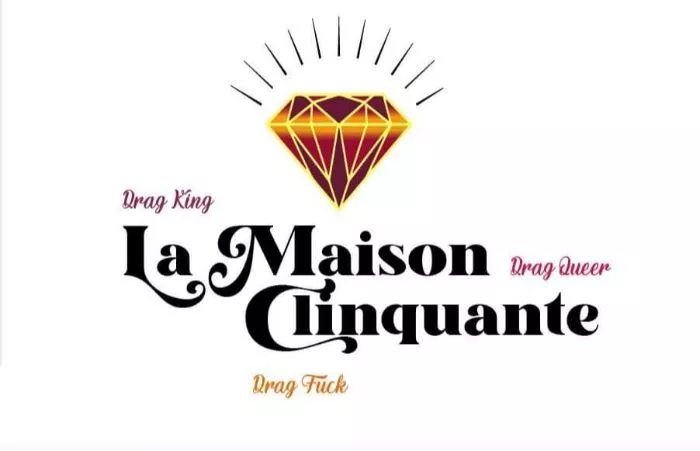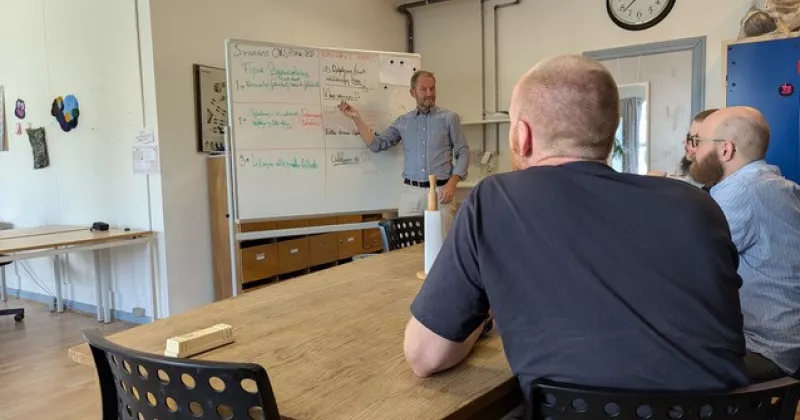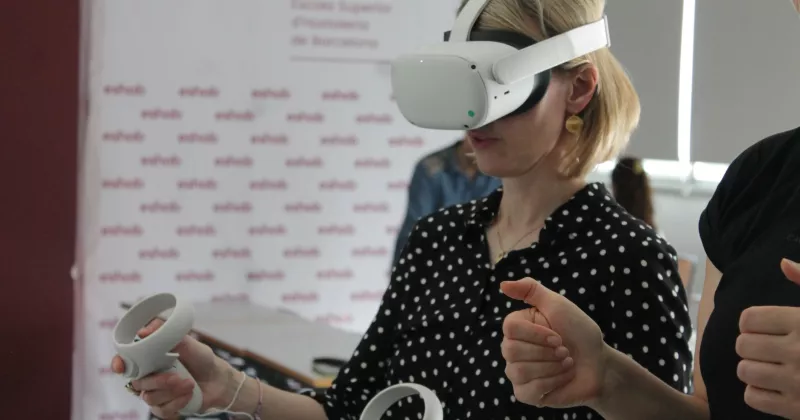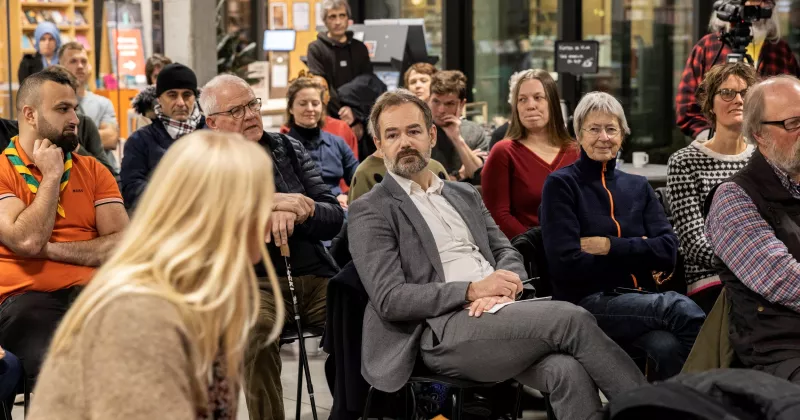Drag, a politically committed art form shaking things up.

At a European seminar, I met Ranael (artist name), a highly engaged member of “La Maison Clinquante”, a cultural and artistic association that promotes queer artists and gender minorities. This is a key issue for many people, but also for society as a whole. If all people are able to live as they please, in a respectful way, then our societies will be freer, more open and more accepting of differences. Sometimes this vision is mocked and criticised as if it were the latest fad of active minorities. And yet, for some years now, individual freedoms have been considered as part of collective freedoms. At a time when dark forces want to confine us to pseudo-traditions or to the rejection of others, understanding and discussing with others who are also members of our society is an essential path to freedom.
David Lopez: Ranael, can you tell us what your role is at “La Maison Clinquante”? And say a few words about how the association works and its purpose?
Ranael: At La Maison Clinquante, my artist name is Ranael. I am part of the artistic team, of which there are six members, all of whom are employees and teachers. We are all drag performers. We have a Board made up of volunteers, as well as a number of learners who are training in the discipline of drag. I am currently also in charge of European projects.
La Maison Clinquante is an association as defined under the French law of 1901, whose aim is to present, produce and organise cultural and artistic events to promote queer artists and/or artists from gender minorities. We want to raise the profile and professional skils of drag artists to create a more inclusive scene. Our collective also aims to pass on skills in the field of drag performance, and more specifically drag-king and drag queer performance, through weekly classes, workshops and courses. This involves a wide range of artistic disciplines such as make-up, dance, theatre, clowning, magic, puppetry, poetry, music, singing and lip-sync[1].
We also want to use our work and these events to raise awareness of the fight against discrimination and inequality. We are actively committed to gender equality and the rights of LGBTQIA+ people.
David Lopez: In fact, the association is at the crossroads of two missions. It is an artistic organisation that defends a particular activity (drag performance), and it is also a place for supporting gender equality and LGBTQIA+ people. How does this work?
Ranael: Drag is an art form that by its very nature is politically engaged. It is an art form that also comes from the LGBTQIA+ community, although the practice of drag is open to everyone, regardless of sexual orientation or gender identity.
La Maison Clinquante aims to promote and teach the practice of drag, to pass on the tools and skills needed to create your own drag character, your own performance, and to provide real artistic expertise. But there aren’t many organisations offering this type of training. For a long time, drag was a practice that was passed down from one person to another, underground and hidden. It has only recently become more accessible. As an art form, it is becoming more and more visible, thanks in particular to television programmes that have opened up this world to the general public.
In our teaching, it is essential to create safe and inclusive spaces, because this is part of our values, but also because most of the people we work with are affected by issues of gender discrimination or sexual orientation. When we produce events, we also present artists concerned with these themes to give them a chance to become more visible and to gain in professional skills.
David Lopez: New forms of feminism are sometimes criticised and misunderstood. What can you say about your vision for fighting discrimination? And what are the most important elements in your fight that could be linked to a feminist form?
Ranael: Our salaried team is made up entirely of AFABs (Assigned Female at Birth). We are therefore all concerned by the issues of the invisibility of women, the role they are given in an eminently patriarchal society, and the discrimination that still exists between men and women in the workplace.
In the course of our different careers, we have come face to face with these themes and issues. Creating an association run by both cisgender women (meaning that their gender identity is consistent with their sex as indicated on their civil status form) and transgender people (meaning that they identify with a gender other than that corresponding to their birth sex) is already a powerful act.
It is a way of reclaiming our place, our voice, our power, and using it to create new spaces for other people affected by these issues. The fact that we have created an association whose main theme is the practice of drag, and in particular Drag King and Drag Queer, is also a strong symbol.
Drag is the often exaggerated performance of a genre. Drag King is the performance of the male gender, which allows us to play with it and to criticise it, but also to propose solutions to move towards less toxic masculinities in our society, and all this through the medium of art, which means that any audience, of any age, from any social or professional background can have access to it. The artistic dimension often makes these issues more accessible to many people. Through our art, we promote tolerance, respect for all, inclusion, solidarity and sisterhood.
David Lopez: Thank you Ranael. I can't wait to see a drag show to get a better understanding of the artistic dimension, but also of the training you provide and your political vision of society. I also see the European dimension as an integral part of your work, as you are looking for possible partnerships with associations in other European countries that share the same struggles.
- Your email address: ranaelproject@gmail.com
- The website: https://www.lamaisonclinquante.com
- Instagram: https://www.instagram.com/la_maison_clinquante/.
David Lopez, EPALE France expert
[1] Lip sync. In the audiovisual field, lip-synchronisation is the set of techniques designed to ensure that the movement of a person’s or character’s lips appears to be synchronised with the words or sounds they are supposed to say, in situations where both are recorded or broadcast by different means and need to be brought together.
Kommentar
La maison Clinquante
Thank you Abdullah Anil for your message. I agree with your viision. In few days, I'm going to write a blog on the issue of sport and inclusion. I met a hand ball team trying to link men and women, LGBTQI+ or not, old and young to practice sport in a very inclusive way.
I hope that you'll enjoy it.
My best, David
- Log ind eller opret en konto for at skrive kommentarer






Thank you, David Lopez
Thank you, David Lopez, for sharing this insightful interview with Ranael from La Maison Clinquante. It's always inspiring to learn about organizations that promote not only artistic creativity but also broader social change. The work that La Maison Clinquante does to support queer artists and gender minorities is commendable, especially in an era where issues of gender equality and LGBTQIA+ rights remain at the forefront of social and political discourse.
Ranael's discussion about La Maison Clinquante's dual mission of promoting artistic expression through drag while advocating for gender equality and LGBTQIA+ rights underscores the transformative power of art. It's fascinating to see how drag, as a form of expression, can both entertain and challenge societal norms. By creating safe spaces for drag performers and emphasizing the importance of diverse voices, La Maison Clinquante is playing a crucial role in fostering inclusivity and social change.